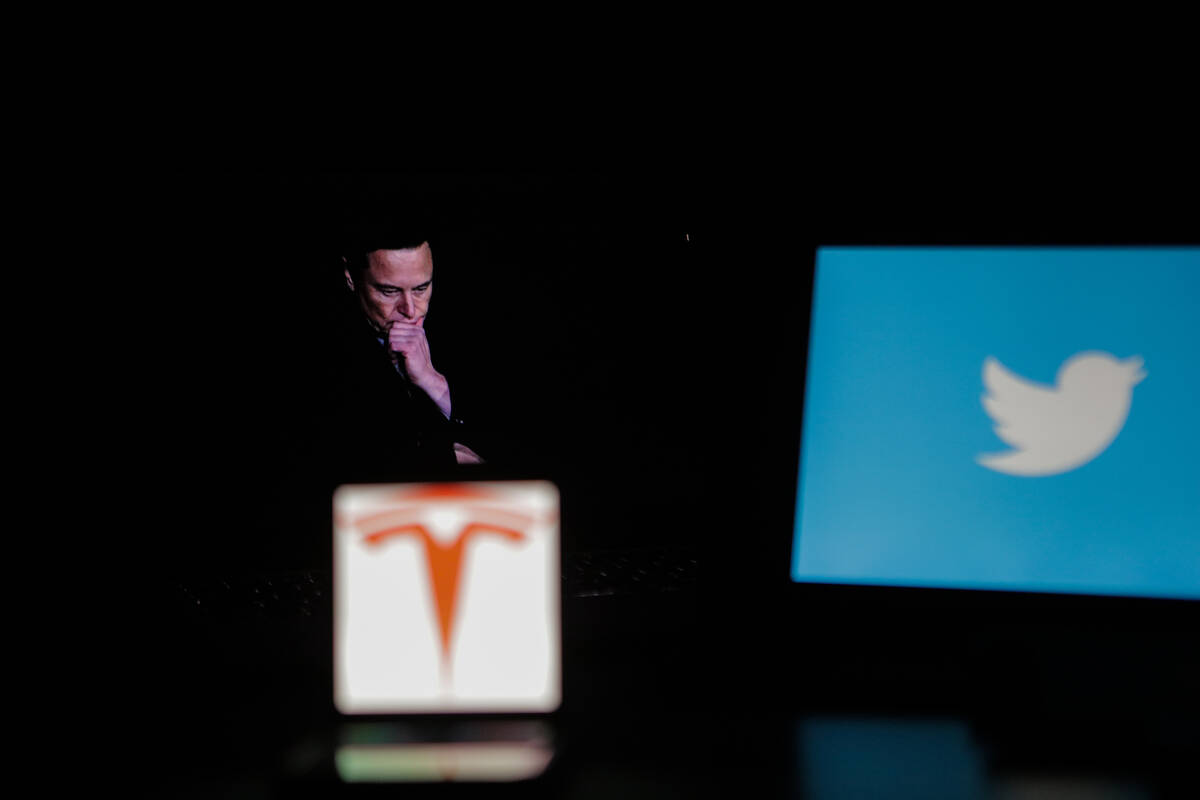CLARENCE PAGE: Elon Musk finds ‘free speech’ to be more than a pastime
I hate to say “I told you so” unless, of course, I turn out to be right.
When Elon Musk called himself a “free speech absolutist” in announcing his intent to purchase Twitter, I wondered how long it would take for his absolutism to evolve into “absolutely not.”
Less than two months after his acquisition was completed for $44 billion in October, amid Musk’s bumpy ride as Twitter’s owner and CEO, he hasn’t softened his “free speech” rhetoric, although his restrictive actions sometimes have spoken louder than his words — or tweets.
For example, in recent weeks, the “Chief Twit,” as Musk calls himself, has allowed some banned users to return to the platform, including former President Donald Trump, who was barred from his account after the Jan. 6, 2021, riots on Capitol Hill. That’s his right as the Chief Twit to decide.
But Musk also has executed massive staff cuts and disbanded a trust and safety advisory group that had guided Twitter on thorny issues such as harassment and child exploitation. Reducing such safeguards asks for trouble, not from the government but from unhappy users.
The fears of Musk’s critics were realized in an explosion of racist, sexist and other hate tweets. After the takeover, many advertisers reportedly fled or cut their spending on the platform. Yet Musk claims Twitter usage has since reached an all-time high “by real humans,” not malicious bots and other phony accounts. We’ll see. He also promised in October that he would form a new council to advise him before making changes to the company’s content moderation policies. It has yet to materialize
Instead, the past weekend brought a flurry of surprises befitting a man of Musk’s notoriously unpredictable actions, mood shifts and whims.
On Dec. 15, Twitter suspended the accounts of about a half-dozen prominent journalists without warning or explanation. Then, just as quickly, they were reinstated.
On Sunday, Twitter suddenly announced users would no longer be able to link to Facebook, Instagram, Mastodon or other platforms that the company called “prohibited.” That decree ignited a blowback of accusations that Musk was breaking his own promise to make no more major policy changes without an online survey of users.
Later that day, the Chief Twit softened his company’s position by tweeting, “Casually sharing occasional likes is fine.”
That’s a relief, perhaps, although its meaning fell way short of clear.
But later Sunday, before much of the Twitterverse could sort that all out, that bulletin was upstaged by another bombshell.
Musk posted an open and unscientific survey in which he invited Twitter users to say whether he should step down as head of the company — less than two months after its purchase.
Whoa! If Musk hoped for a resounding vote of confidence, it was not to come. Instead, 57 percent of the 17 million who voted said he should go. In other words, the support for Musk was about as enthusiastic as the Dec. 11 San Francisco comedy club crowd that booed him in a surprise guest appearance with Dave Chappelle. Applause was almost drowned out by the resounding boos. Tough crowd.
Musk’s sad poll results were followed by another tweet: “As the saying goes, be careful what you wish, as you might get it.”
Indeed, if Musk thought running Twitter would be a snap after his earlier successes with solar power, electric cars, space travel and other ambitious endeavors, well, the world isn’t that simple.
The First Amendment protects content providers from government interference with speech and the press, but it doesn’t protect private companies from poisoning their own consumer appeal with an anything-goes policy that turns their content into a digital garbage dump.
It is sobering to compare the “censorship” complaints of our often-rowdy American internet trolls with those in countries where press and speech freedoms face more serious attacks.
I’m reminded of how the number of journalists jailed around the world for doing their jobs set a record this year for the second year in a row, according to the Committee to Protect Journalists, on whose board I am a member. Some 363 journalists were deprived of their freedom as of Dec. 1, a new global high that beats last year’s record high by 20 percent — and it’s getting worse.
With that in mind, I welcome Elon Musk to the world of media, even as he finds being an owner to be less fun than just being a tweeter.
Contact Clarence Page at cpage@chicagotribune.com.

















